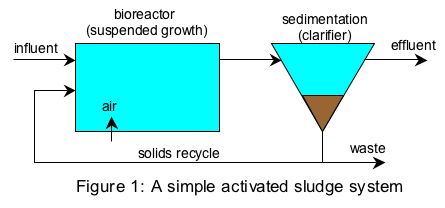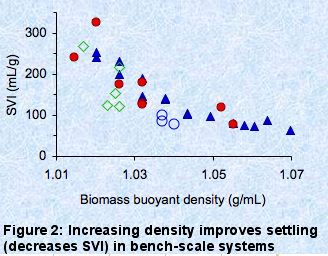Microbial Storage Products and Bacterial Density:
Improving Solids Separation Processes in Biological Wastewater Treatment
Suspended growth biological treatment (activated sludge) is the most common wastewater treatment process in the U.S. and worldwide ( Figure 1 ). The enormous quantity of bacteria produced in these systems must be removed prior to discharge - this is most commonly and efficiently done by sedimentation. However, sedimentation remains a problematic process at wastewater plants worldwide, resulting in increased risks to downstream ecosystems and public health, as well as increased costs.

Work in our laboratory is demonstrating that bacterial settling rates are strongly influenced by factors such as microbial storage product content, and this density effect greatly influences settling rates (Figure 2).

We are currently working to model the factors influencing microbial density and to assess their importance relative to other known factors such as bacterial floc size and structure (e.g., filament content). We are particularly interested in studying microbial storage product accumulation and the identification of the responsible bacteria using molecular methods, as well as how these factors can be exploited.